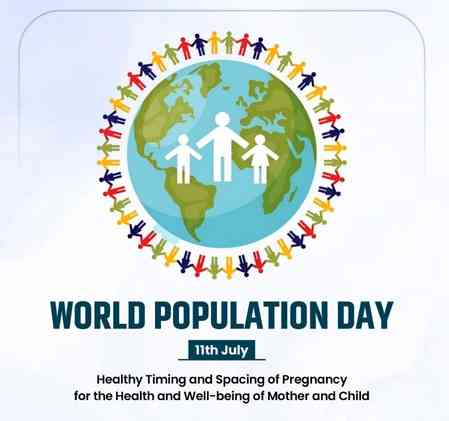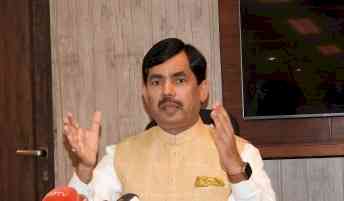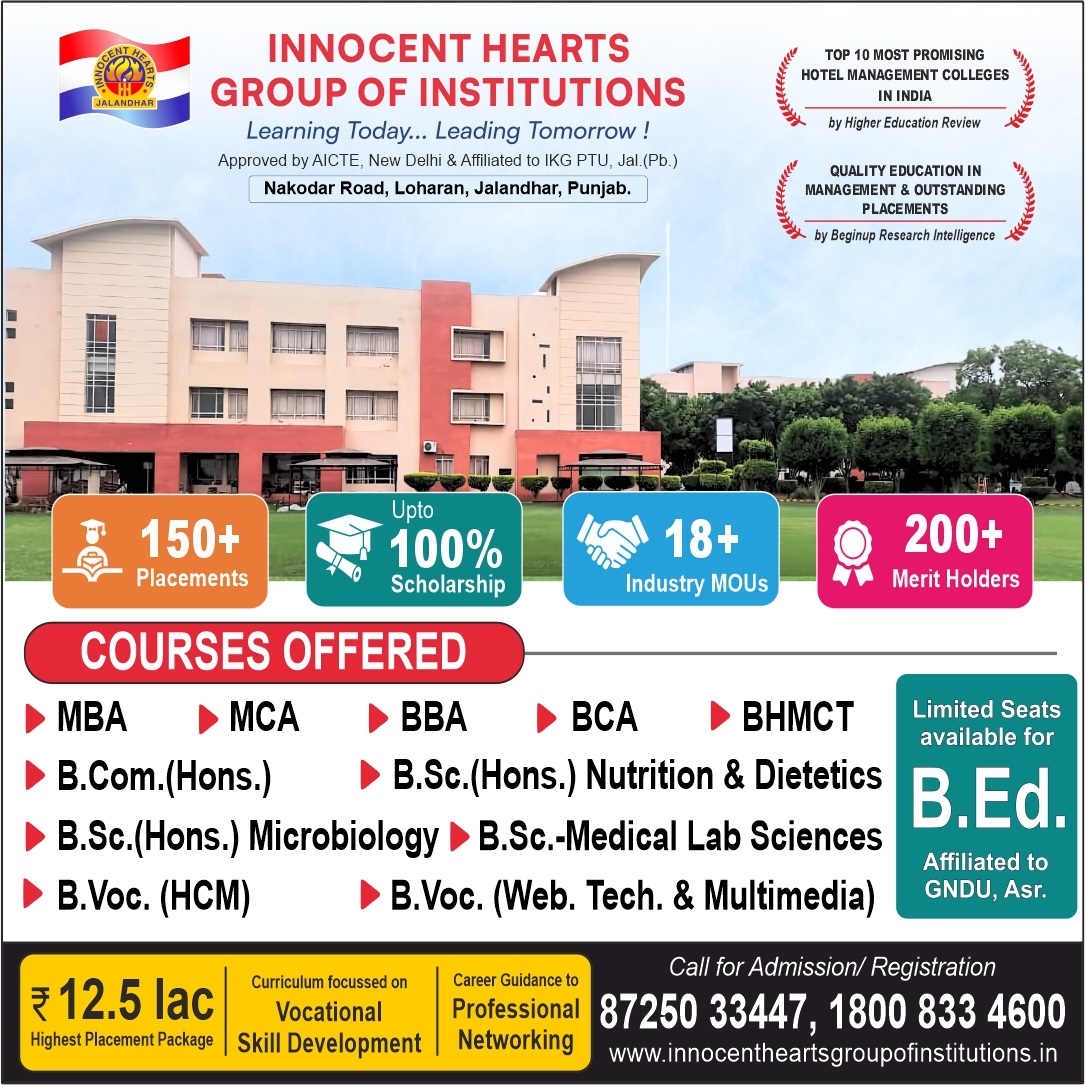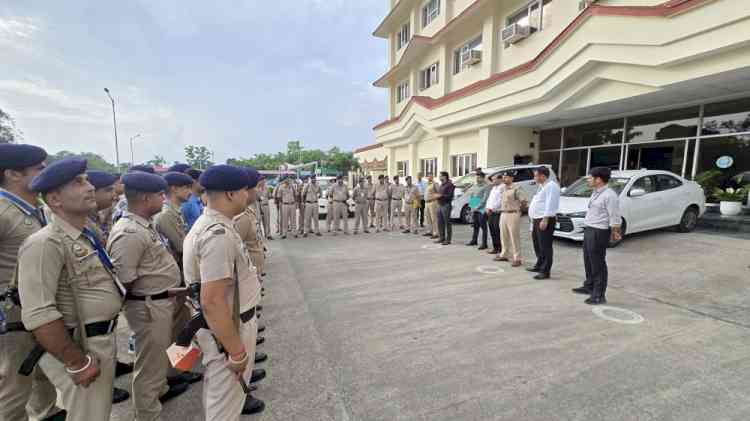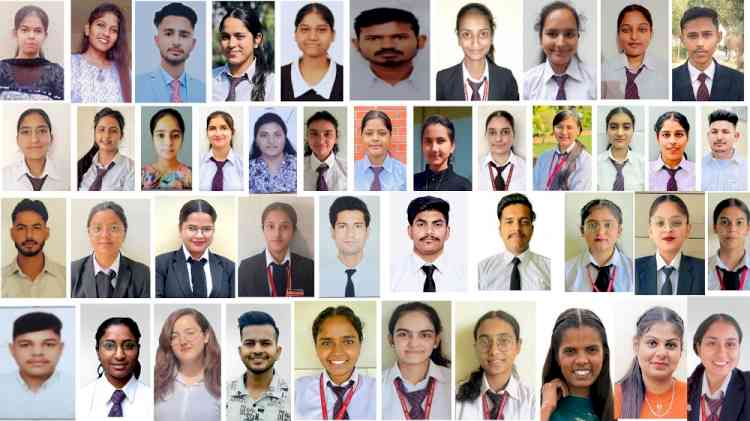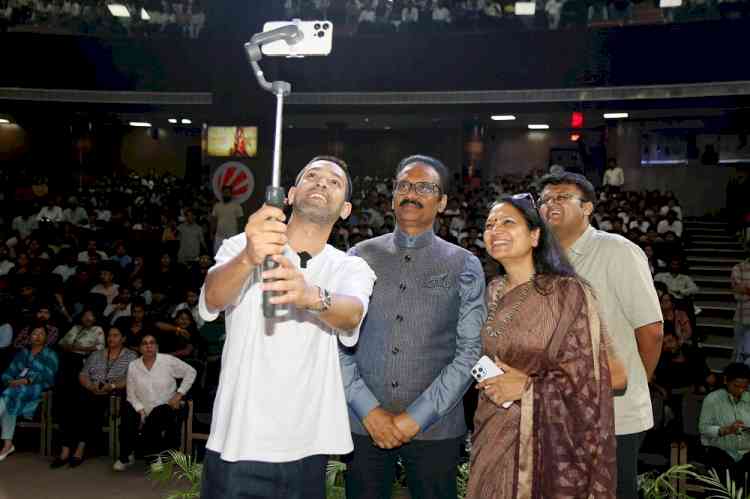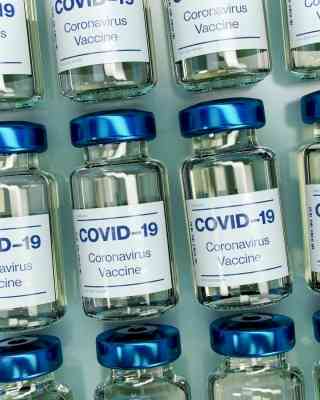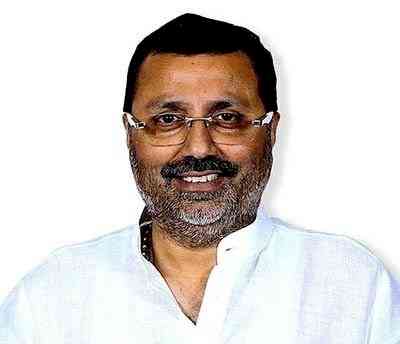Can Ayurveda help in reducing expenses for patients? Minister replies to Arora in RS
Ayurveda is one of the oldest systems of medicine with two prime objectives viz. promotion and preservation of health and affordable treatment of a disease in suffering patients.

Ludhiana, December 24, 2024: Ayurveda is one of the oldest systems of medicine with two prime objectives viz. promotion and preservation of health and affordable treatment of a disease in suffering patients.
This has been stated by the Minister of State (IC) of the Ministry of Ayush Prataprao Jadhav in an answer to questions on "Ayurveda in reducing out-of-pocket medical expenses" asked by MP (Rajya Sabha) from Ludhiana Sanjeev Arora in the recently concluded winter session of Rajya Sabha.
Giving this information here today, Arora said the Minister further mentioned in his answer that Ayurveda plays a significant role in reducing out-of-pocket medical expenses in the country through its emphasis on preventive healthcare, affordable treatment options, and holistic approaches to disease management. Following Ayurveda based lifestyle like Dincharya (daily routines), Ritucharya (seasonal regimes), which manifest a healthy lifestyle, the chances of disease manifestation in individuals may decrease significantly.
Further, the Minister mentioned in his answer that to popularize the Indian Medicine System under Ayush including Ayurveda, Ministry of Ayush is implementing Centrally Sponsored Scheme National Ayush Mission (NAM) and Central Sector Schemes providing financial assistance for promotion and popularisation of Ayush systems of medicine at National and International level.
As per the proposals received from the State/UT Governments through State Annual Action Plans (SAAPs) under National Ayush Mission (NAM), Ministry of Ayush has released an amount of Rs. 4534.28 Crores from the year 2014-15 to 2023-24. After implementation of NAM Scheme, the scale of achievement for development and popularisation of Ayush system of medicine in the States/UTs has increased significantly. Accordingly, budget allocation of NAM enhanced gradually from Rs. 75.28 Crore (in 2014-15) to Rs.1200.00 Crore (in 2024- 25) for implementation of different activities of NAM Scheme through States/UTs. Under NAM, consolidated funds are being released to the State/UT Governments for development and promotion of different Ayush systems and stream-wise funds are not being released.
Major activities supported under NAM for development, promotion and popularization of Ayush System of Medicine from 2014-15 to 2023-24 are as follows: 167 units supported for setting up of Integrated Ayush hospitals; 416 Ayush Hospitals and 5036 Ayush dispensaries have been supported for Up-gradation of infrastructure and other facilities; 2322 PHCs, 715 CHCs and 314 DHs have been supported under co-location for recurring assistance of medicines and contingency on an average in each year; 996 Ayush Hospitals and 12405 Ayush dispensaries have been supported for supply of essential Ayush medicines on an average in each year; 16 units supported for establishment of New Ayush Educational Institutions; 76 Under-Graduate and 36 Post-Graduate Ayush Educational Institutes have been supported for Upgradation of infrastructure, Library and other things; 1055 Ayush Gram have been supported; and 12500 Ayuhsman Arogya Mandir (Ayush) have been approved.
The Minister’s answer also mentioned that Ministry of Ayush is implementing Central Sector Scheme for Ayush Oushadhi Gunavatta evam Uttpadan Samvardhan Yojana (AOGUSY) for the year 2021-2026 with financial outlay of Rs.122 Crores whose one of the objectives is to encourage building up synergies, collaborations, and convergent approaches for promoting standards and quality of Ayush drugs & materials.
12 National Institutes and 5 Research Councils under the Ministry of Ayush are engaged in co-ordinating, formulating, developing, promoting, and popularizing Ayush system of healthcare.
The answer also mentioned that Ayurveda, the traditional Indian System of Medicine, has demonstrated significant effectiveness across various specialties, particularly in managing chronic disease conditions and lifestyle-related disorders. Central Council of Ayurvedic Sciences (CCRAS), the apex body for the formulation, coordination, and development of research in Ayurveda has generated the evidence of safety and efficacy in various medical conditions as a standalone management and an add-on to standard care through multiple intra-mural and collaborative research projects.
Evidence-based research data of Ayush Systems including Ayurveda is available in the exclusive portal namely Ayush Research portal. More than 30920 research publications in Ayurveda including clinical, pre-clinical, drug research and fundamental research are available in the portal.


 City Air News
City Air News 

